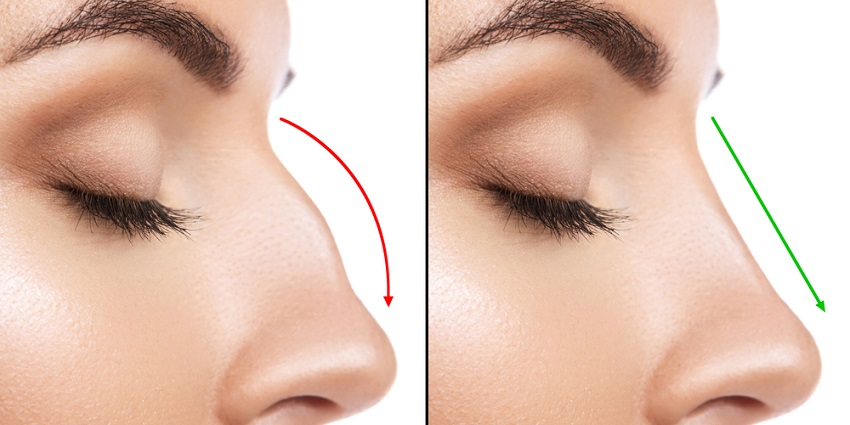According to statistics, rhinoplasty is the most popular cosmetic surgery among men and the fourth most common overall. Also called a “nose job,” this cosmetic procedure involves surgically modifying portions of your nose to give your face the appearance you desire. Rhinoplasty can also improve breathing and correct facial damage after an accident. A good example was seen after World War II when wounded soldiers would undergo early forms of nose reconstruction surgeries to replace noses they lost in explosions and chemical attacks.
Having nose surgery is a big decision, so you should have an in-depth conversation with your surgeon to discuss the ideal results you wish to achieve and what to expect post-surgery. Your doctor may ask you about your past surgeries, drug history, health history, and other personal questions. You need to be completely honest with them to avoid complications during and after surgery. Here are some topics to cover when consulting with your surgeon:
1. Your Surgeon’s Certifications, Training, and Surgical Expertise
Kindly ask your surgeon to provide his training and certification credentials. There are different fields of plastic surgery. Ask him how long he has been performing nose surgeries. Go a step further and ask him about his past patients’ experiences. How many patients required revisions, how many were happy with their final look, and how frequently does he perform rhinoplasties every month? These questions will help you understand how skilled your surgeon is. Narrow down and ask questions that are related to your case. Does he specialize in male or female nose jobs? Has he ever performed rhinoplasty on a patient of your ethnicity? How did that affect the results? It’s advisable to settle for a surgeon who has a lot of experience doing nose jobs, so you can be confident you will be in safe hands. There are many horror stories of people who have been “botched” by inexperienced surgeons. Doing thorough research on your surgeon’s background will prevent this from happening to you.
2. What To Expect Before, During, and After Surgery
Have an honest discussion on what to expect before, during, and after the procedure. Give your surgeon a detailed explanation of your desired results, and let them explain to you if those results are achievable for you. After doing a nose examination, your surgeon can advise you accordingly. Just because something worked for someone else doesn’t mean it will work for you. Be open-minded and adjust your expectations if need be before undergoing the procedure. Also, discuss what can go wrong during or after the procedure. Some minor complications can happen, and you need to be comfortable with that. Serious complications can occur depending on your medical history. Having this in mind will help you develop the right mindset before going under the knife.
3. Rhinoplasty Techniques
With the help of your surgeon’s before and after pictures, they can briefly explain the different types of nose job procedures and which type will work best for you. You don’t need to know hard medical terms to understand this. For example, two main types of nose job procedures are done to reshape the nose tip – open rhinoplasty and closed rhinoplasty. Open rhinoplasty is done by making an incision between your nostrils on the outside of the nose. In closed rhinoplasty, the incision is done inside the nostrils. The one they will choose will depend on your unique anatomy. Also, how invasive is the technique they will perform on you, and will it leave visible scars? Take the time to understand these techniques as your surgeon explains them. Be wary of surgeons who don’t want to show you before and after pictures of their patients.
4. The Recovery Process
Understanding the recovery process will help you plan yourself. You need to know how long it will take for a full recovery. This will help you plan for a work or school leave duration that will give you ample time to recover fully. Is the recovery process painful? Will you be taking medication? Your surgeon should explain what it will be like hours, days, and weeks post-surgery. Your daily routine may have to change for a while. You may find it helpful to have a close friend or family member stay with you during the initial stages of recovery. The surgeon will also give you postoperative directives to follow. This may include what you can eat, drink, how you should sleep, what medications to take, and what you should avoid doing. You need to carefully follow these instructions to ensure your recovery process is smooth and quick.
5. Get Testimonials
Any good and experienced plastic surgeon will have at least two or three patients willing to give testimonies of their experience. Ask your doctor to connect you with these patients and reach out to them to ask them what it was like for them. Ask them how long their recovery was. How did the staff at the clinic treat them? Did they have a revision? How did the surgeon handle their case from beginning to end? Past patients can give you a good idea of what to expect from your doctor. Be on the lookout if your surgeon refuses to connect you with his past rhinoplasty patients.
6. Surgery Costs and Financing
You will want to be clear on the total costs of the whole procedure and which payment plans are available. When the surgeon gives you their quote, ask if it includes lab work, medication, post-op check-ups, and revisions. This will help you stay within budget. If someone else will be paying for your rhinoplasty, it is best to give them an all-inclusive quote.
Before your surgery day, you should be confident and relaxed about the decision of getting a rhinoplasty from your surgeon. If you have any doubts or uneasy feelings, feel comfortable declining that surgeon and looking for another one.

